Here and There 2019 Program Notes |
|
Zeitgeist
Heather Barringer and Patti Cudd, percussion; Pat O’Keefe, woodwinds; Nikki Melville, piano No Exit New Music Ensemble Sean Gabriel, flute; Gunnar Owen Hirthe, clarinet; Cara Tweed, violin; James Rhodes, viola; Nick Diodore, cello; Luke Rinderknecht, percussion; Nicholas Underhill, piano; Timothy Beyer, Artistic Director; James Praznik, Associate Director Artist Statement: Throughout our history, Zeitgeist has championed the work of composers in our community, commissioning, developing, and premiering hundreds of works by Minnesota composers. Cleveland based No Exit New Music Ensemble boasts a similar passion with regard to their local artists. Both groups recognize that while creating work with artists near at hand is essential to creating a vibrant musical community, our work also becomes richer when we welcome new ideas into our midst, and increases in its impact when we share it with audiences near and far. Here and There is part of an artistic partnership between Zeitgeist and No Exit through which we will engage in the import and export of musical ideas between our two communities. Both ensembles will present in both cities, performing and developing work by Minnesota and Ohio composers and introducing audiences and artists to new musical possibilities. Together, we’ll learn more about what makes each community unique, what we have in common, how we differ, what we can share, and what we might take away. Notes & Bios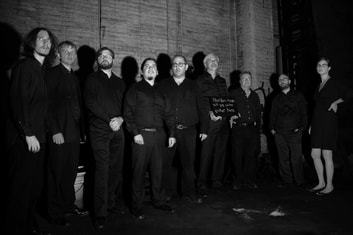
Since it’s inception, No Exit’s mission has been to serve as an outlet for the commission and performance of contemporary avant-garde concert music. Now in their ninth season and with over fifty commissions to date, No Exit continues to promote the music of living composers and to be an impetus for the creation of new works. They create exciting, meaningful and thought-provoking programs with the philosophy of bringing the concert hall to the community, and by presenting programs in a manner which allows for audiences to connect with the experience.
The ensemble has presented music that represents the gamut of the avant-garde: from the impish and mirthful jazz stylings of Raymond Scott to the cerebral hypercomplexity of Brian Ferneyhough (and just about everything in between). They give voice to those composers who have something to say, whether they be young composers at the beginning of their journey, established composers at the height of their abilities, or venturing into the past by exploring new ways of sharing the unconventional and innovative music of the early twentieth century’s artistic vanguard, which led to the commission of exciting contemporary re-imaginings of music by Erik Satie and Eric Dolphy, to name a few. While No Exit has brought their work to other national and international locales, their emphasis is on serving the community in Northeast Ohio. No Exit has formed many longstanding and fruitful partnerships with individuals and organizations in the Greater Cleveland area to bring unique programming to audiences in Northeast Ohio and to nurture the development of young composers and musicians from the area through workshops, student readings and master classes. 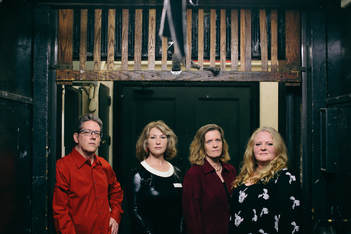
Lauded for providing “a once-in-a-lifetime experience for adventurous concertgoers,” Zeitgeist is a new music chamber ensemble comprised of two percussion, piano and woodwinds. One of the longest established new music groups in the country, Zeitgeist commissions and presents a wide variety of new music for audiences in the Twin Cities and on tour. Always eager to explore new artistic frontiers, Zeitgeist collaborates with poets, choreographers, directors, visual artists and sound artists of all types to create imaginative new work that challenges the boundaries of traditional chamber music. More
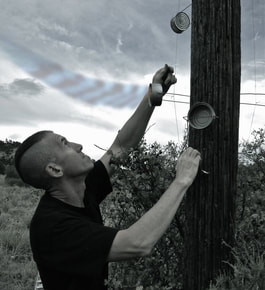
Philip Blackburn was born in Cambridge, England, and studied music there as a Choral Scholar at Clare College. He earned his Ph.D. in Composition from the University of Iowa where he studied with Kenneth Gaburo and began work on publishing the Harry Partch archives. Blackburn's book, Enclosure Three: Harry Partch, won an ASCAP Deems Taylor Award. He has worked at the American Composers Forum since 1991, running the innova Recordings label and developing re-granting programs and opportunities for composers.
He is also a composer/environmental sound artist and has served as teaching artist for school residencies connected with the Flint Hills International Children’s Festival, creating multimedia performances using home-made instruments. Blackburn has published articles on topics such as Vietnamese, Garifuna, and Cuban music, the social dynamics of ensemble performance, and the use of sound in public art. He received a 2003 Bush Artist Fellowship and built an art-house in Belize. Air. Air; Canary; New Ground (1984) for clarinet and piano
“Air can e’er renew ground,” as the poet might have said. The fact is, none ever did. It was just a misread list of titles of harpsichord pieces by Henry Purcell that caught my attention during a school holiday in England when I was starting to write this work, my first paid commission. I had seen Peter Greenaway’s film, The Draughtsman’s Contract (1982), with music by Michael Nyman. He had taken several Purcell ground bass patterns, and slyly arranged them in Minimalist fashion as commentary on the (bizarre) plot. I decided to outdo him and take a similar repeating ground bass – a simple descending tetrachord – but wrestle as much counterpoint out of it as I possibly could. The attentive listener may count up to 87 canons embedded in the solo clarinet line alone, stretched and displaced. The solo piano second movement does something similar but in reverse. And finally the instruments find common ground together. The musical gestures may well relate to my speech patterns as well as the fact that, during the composition process, I had to rotate my body very slowly in front of the fireplace to keep warm in my mother’s chilly house that winter. One reviewer at the premiere heard plenty of new ground but not many canaries. That is fair enough. 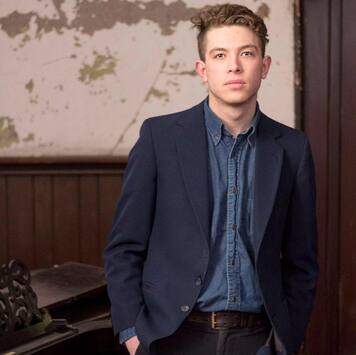
Originally from Columbia, Mississippi, Buck McDaniel is a composer based in Cleveland, Ohio. His works have been performed internationally both in Europe and across the United States including New York City, Detroit, Washington (DC), Pittsburgh, Boston, Cincinnati, and Jackson (MS). Commissions include new works for the Anglewood Music Festival (MA), the Massachusetts Museum of Contemporary Art, Pipeworks Festival (Ireland), Hereford Cathedral (UK), Lincoln Cathedral (UK), the Cleveland Museum of Contemporary Art, and the No Exit New Music Ensemble. As an arranger, he has worked with composer Nico Muhly, Cleveland-based bands Mourning [A] BLKstar, times10, and ITEM. As the 2018/19 Kulas Composer Fellow at Cleveland Public Theatre, projects included composing a live score for the nationally acclaimed production of Fire on the Water and as arranger/orchestrator for the world premiere production of Everything is Okay. McDaniel holds the position of Organist & Director of Music at St Andrew’s Church: an historic, Episcopal parish mid-city; Assistant Organist at St John Nepomucene Parish in Cleveland’s historic Slavic Village neighborhood; and Director of Music to St John’s, Ohio City - the oldest church in Cleveland. As a recitalist, he has appeared as organ soloist with the Cleveland Philharmonic, given solo recitals in Pittsburgh’s Heinz Memorial Chapel and Cleveland’s Trinity Cathedral, and performed with ensembles at Severance Hall (Cleveland), the Gem Theatre (Detroit), and the Natchez Opera Festival. He studied composition at Cleveland State University with Andrew Rindfleisch and Gregory D’Alessio, organ with Todd Wilson, and privately in New York City with composer Timothy Andres and organist James McVinnie.
Scherzo in Four Movements obsesses over a Reich-ian relationship between the two mallet instruments (think Music for 18 Musicians), yet its harmonic shifts are more severe. The opening section of the second movement, Sections, is a reaction to the texture of the second movement of Andrew Rindfleisch’s Nightsinging. I’ve completely changed the harmonic content, and the work develops in an entirely unrelated way. A music history professor in school described a Scherzo as a joke, but not necessarily a funny joke. As in, the joke can be cruel, or "on you." The heart of the piece is this absurd Beethoven-ian "BAH-dah-dump" gesture. You’ll hear it when you hear it.
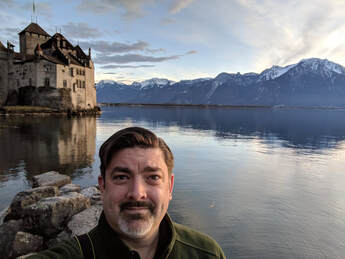
Christopher Brakel (b. 1977) is a composer of acoustic and electro-acoustic music, an educator/arts advocate, a music copyist/engraver, and a technology consultant.
He holds advanced degrees in composition from the Eastman School of Music at the University of Rochester (Ph.D.) and the University of Iowa(M.A.), and a B.A. in Music from the University of Minnesota, where he studied percussion and composition. Additionally, he is a member of the Pi Kappa Lambda National Music Honor Society. Dr. Brakel has held teaching positions at Chapman University, the Eastman School of Music, and the University of Iowa. Recordings and publications of his works can be found on: Centaur Records, PARMA Recordings, Firnspiegel Music (ASCAP), and qPress. jo dīsai so to hai nāhīṉ (That Which You See is Not)
Originally conceived as a piece for solo percussion, That Which You See Is Not grew into a trio for bass clarinet and two percussionists through collaboration during the 2019 Zeitgeist Composer Workshop in St. Paul, MN. The piece takes as a point of departure a poem of the same name by the 15th-century Indian mystic poet and saint, Kabir. Structural elements of the poem inform aspects of the piece’s temporal/metrical structure, as well as certain foreground/surface-level musical details such as recurring gestures and pitch centricity. At a conceptual level, it is a contemplation of form and formlessness. On a spiritual level, it is a musical meditation on love, renunciation, death, and transcendence. 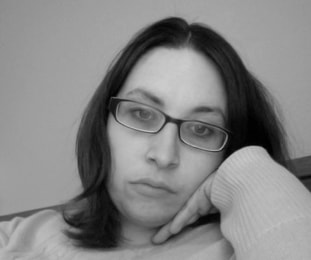
Tiffany M. Skidmore holds degrees in Music Composition and Vocal Performance from Gonzaga University, Eastern Washington University, and the University of Minnesota. She has studied with acclaimed Scottish composer James Dillon, Chaya Czernowin (head of Music Composition at Harvard University), Jonathan Middleton, and J. Kevin Waters. Her work has been featured in the Hildegard von Bingen Festival of Women in the Arts and the Rimon Artist Salon, and performed throughout Europe and the United States by Duo Gelland, the California State University Stanislaus Concert Chorale, Opus7 Vocal Ensemble, The Gregorian Singers, the Kiev Philharmonic, Ensemble Dal Niente, Fonema Consort, and the Strains New Music Ensemble, among many others. She has received commissions and awards from organizations including the Jerome Fund for New Music, the University of Minnesota, Rimon: the Minnesota Jewish Arts Council, and the Schubert Club. She was selected for participation in the Centrum Composition Program, the Nautilus Composer-Librettist Studio, the John Duffy Institute for New Opera, the 2016 Internationale Ferienkurse for Neue Musik Flute Composition Workshop (with Rebecca Saunders and Eva Furer), and the Zeitgeist Composer Workshop. She is a 2018 McKnight Composer Fellow, a member of the American Composers Forum, and president of the Minneapolis composer collective, 113.
The Psyche and Cupid Miniatures are encapsulations of elements from my opera, The Golden Ass, which will premiere on February 21-23, 2020 at Nautilus Music-Theater, and will also be heard as part of the final performance of the completed production. The opera is a modern adaptation of the myth of Psyche and Cupid by Apuleius that combines Apuleius's text with a new libretto by Patrick Gallagher. The Miniatures zoom in on certain characteristic sounds from the opera and re-contextualize, re-imagine, and expand upon those sounds.
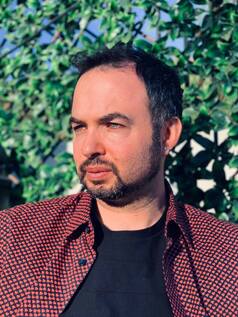
Joshua Musikantow is a composer, author, and percussionist specializing in nontraditional tuning systems. Much of his work contains both original text and music. His work has been performed in England, France, Sweden, Germany, the Czech Republic, and across the United States. He has been the recipient of the McKnight Artist Fellowship (2013), the JFund award (2012), a Foundation for Contemporary Art emergency grant (2017), and other honors. He earned his BM in Music Composition at Lawrence University, his BA in English at Lawrence University, his MA in Music Composition at the University at Buffalo, and his PhD in Music Composition at the University of Minnesota. His dissertation advisor was the acclaimed Scottish New Complexity composer, James Dillon.
Flare
Each of the nine short movements of Flare is assigned a card in a hypothetical deck of cards, containing the suits: bowls, vines, hourglasses, and shadows. The text takes the form of a quasi-divinatory reading based on my personal associations with the numbers and suits. The text is recited as if English were a tonal language, with various curves in pitch indicated over short units, but no specified melodic shape for whole lines RANDY BAUER is a composer and jazz musician based in Minneapolis, Minnesota. His works have been performed across a range of cities and venues, from Austin to Zagreb, including New York, Chicago, Washington (the Kennedy Center), Boston, Pittsburgh, Baltimore, Los Angeles, St. Petersburg (Russia), Uppsala (Sweden), Berlin, Paris, Weimar, and in many other smaller cities and at universities across the United States.
Premieres of his work have been given by members of the Minnesota Orchestra and St. Paul Chamber Orchestra, the Brentano String Quartet, eighth blackbird, Nash Ensemble of London, Pittsburgh New Music Ensemble, Synergy Vocals, New Millennium Ensemble, MATA Micro-Orchestra with Theo Bleckmann, Network for New Music, and many others. His music appears on Albany and Cedille Records. He was named a 2013-14 McKnight Foundation Fellow in Music Composition by the McKnight Foundation of Minnesota. He also received a major fellowship in 2006 from the New Jersey State Council on the Arts. He has been a resident artist at Yaddo, the Ucross Foundation, and the Atlantic Center for the Arts, and has received many regional and national awards, including three ASCAP/Morton Gould Awards for Young Composers. He is also an accomplished jazz pianist and composer, and has received recognition from DownBeat, the Commission Project, Jazz Composers Alliance, and has won the ASCAP Young Jazz Composer's Award. Bauer is Associate Professor of Music at Macalester College in St. Paul, Minnesota, where he teaches composition, theory, and jazz topics. He holds degrees from the Peabody Conservatory of Music (BM, MM), and Princeton University (MFA, PhD). His teachers have included Ronald Caltabiano, Chen Yi, Steven Mackey, and Paul Lansky. Pauline Oliveros (1932-2016) was a senior figure in contemporary American music. Her career spans fifty years of boundary dissolving music making. In the 1950s she was part of a circle of iconoclastic composers, artists, and poets gathered together in San Francisco. Awarded the 2012 John Cage award from the Foundation of Contemporary Arts, Oliveros was Distinguished Research Professor of Music at Rensselaer Polytechnic Institute in Troy, NY and Darius Milhaud Artist-in-Residence at Mills College. Oliveros was as interested in finding new sounds as in finding new uses for old ones. Her primary instrument was the accordion, an unexpected visitor perhaps to musical cutting edge, but one which she approached in much the same way that a Zen musician might approach the Japanese shakuhachi. Oliveros's life as a composer, performer and humanitarian was about opening her own and others' sensibilities to the universe and facets of sounds. Since the 1960s, she influenced American music profoundly through her work with improvisation, meditation, electronic music, myth and ritual. Pauline Oliveros was the founder of "Deep Listening," which comes from her childhood fascination with sounds and from her works in concert music with composition, improvisation and electroacoustics. She described Deep Listening as "a way of listening in every possible way to everything possible to hear no matter what you are doing. Such intense listening includes the sounds of daily life, of nature, of one's own thoughts as well as musical sounds. Deep Listening is my life practice." Oliveros founded the Deep Listening Institute, formerly Pauline Oliveros Foundation, now the Center For Deep Listening at Rensselaer.
|

